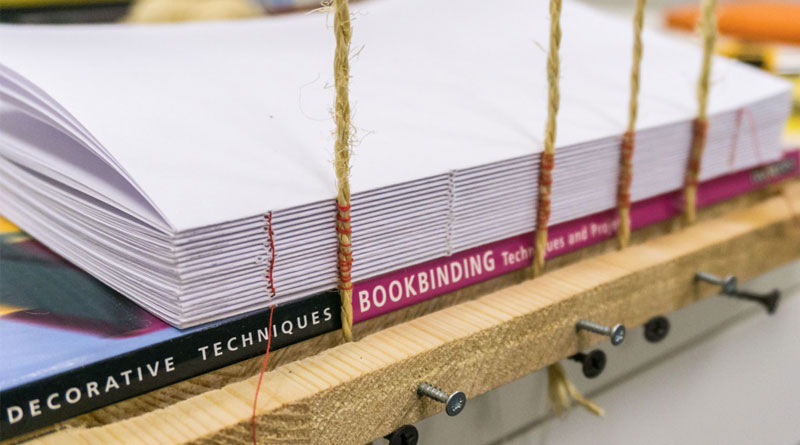Book Binding Basics
Whether you’re looking for a new way to bind your collection of scrapbooks, or are creating your own journal or personal appointment books, you’ll want to know about book binding that you can do yourself. Here are a few tips and suggestions for making sure that your books look professional and presentable—even if you’re binding them at home.
One of the best and most stylish ways to bind your books is to use mechanical binding. Mechanical binding provides a sleek, modern line for your books, and prevents bulking no matter how many pages you have. Mechanical binding can also accommodate books that have several sections or tabs.
For smaller books, or books with thinner paper for pages, you may want to try plastic combs or spirals. This way, you can still create a new look for your scrapbooks, and make allowances for new pages with having to use paperclips or staplers. Plastic spirals will also add more security to the pages when the book is opened, so you won’t have to worry about chasing missing pages every time you look through your favorite scrapbook or journal.
Basic stitching techniques for book binding include the Kettle Stitch, which is the basic link stitch you will use to connect your pages. You should also become familiar with how to stitch in between and within the cords of the book cover or pages, as well as sewing split leather or double cords together. Tools that you’ll need for book binding include a drill (depending on what material you’ll want to use for the front and back covers of your book), tapestry needles, a utility knife, a pencil, and a clean, flat surface to work on.
Renaissance and Gothic styles
Before you start the book binding process, it may be a good idea to learn the basics about book binding from a few professionals, so that you’ll know what to do at home. Printing companies and bookstores often have tips and pointers for those who want to bind their own books at home, and you’ll also be able to learn which materials and techniques work best for the style of book binding you want to use on your books. With a little practice, you can give your books an authentic feel, with Renaissance and Gothic styles, and you can even find instructions and visual aids online that will help.
Once you get the hang of book binding, you’ll want to create a number of different books for your personal or home office use, and you can even make photo albums to store family memories. Book binding is a great way to make sure that your most prized materials are preserved in a way that you would be proud of. You may even want to have your books embossed, so that you can label them in an appealing way. Many of the supplies that you’ll need can be found at your local craft store, or even at certain thrift or consignment stores in your area.
An Introduction to the Art of Book Binding
Learn binding techniques for journals, sketchbooks, zines, artist’s books, scrap books, and more!
- Students will have a general understanding of book making with an exposure to:
- Terms, Materials, and Resources
- Binding Techniques
- Book Making Inspiration





